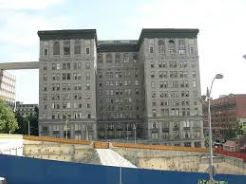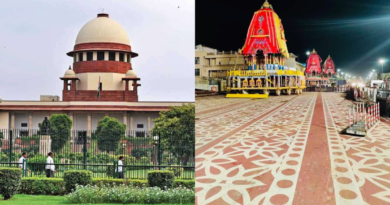US Judge Temporarily Blocks Trump’s Executive Order on Birthright Citizenship Amid Legal Challenges
(Judicial Quest News Network)
Seattle, January 24, 2025
In a major legal setback for President Donald Trump, his executive order aimed at ending birthright citizenship faced its first significant legal challenge on Thursday, resulting in a temporary block by a federal judge. The ruling, delivered by US District Judge John C. Coughenour, halted the order’s enforcement, highlighting the ongoing legal battle over the future of birthright citizenship in the United States.
What is Birthright Citizenship?
Birthright citizenship is the principle that anyone born within the territory of a country automatically acquires its citizenship. In the United States, this right is guaranteed by the 14th Amendment to the Constitution, which states: “All persons born or naturalized in the United States, and subject to the jurisdiction thereof, are citizens of the United States and of the State wherein they reside.” The amendment, ratified in 1868, was designed to ensure citizenship for former slaves after the Civil War.
However, critics of unrestricted immigration have argued that birthright citizenship incentivizes illegal immigration, as children born in the U.S. to undocumented parents automatically become citizens, potentially granting them the right to petition for their parents’ legal residency.
The Executive Order and Its Legal Challenges
In response to concerns over illegal immigration, President Trump issued the executive order shortly after being sworn in for his second term, attempting to deny citizenship to children born in the U.S. to parents living there illegally. This order quickly faced a wave of legal challenges from states, immigrant rights groups, and advocacy organizations.
As of Thursday, at least five lawsuits had been filed against the executive order, including cases brought by 22 states and immigrant rights groups. Washington and Arizona led the charge, with Washington’s lawsuit being the first to receive a hearing. The case is considered a key moment in determining the fate of birthright citizenship in the U.S.
What’s Next for the Legal Challenges?
Judge Coughenour’s ruling on Thursday was a temporary restraining order, meaning that the executive order will remain blocked for at least the next 14 days. During this period, both sides will submit further arguments on the legal merits of the case.
A follow-up hearing has been scheduled for February 6, 2025, where the judge will decide whether to issue a preliminary injunction to block the executive order long-term while the case continues. Additionally, several other lawsuits challenging the order are set to proceed in various states. For example, a case filed in Maryland by CASA, a nonprofit that supports abused and neglected children, will have its first hearing on February 5, 2025, in Greenbelt, Maryland.
Other challenges, including a lawsuit led by New Jersey on behalf of 18 states, the District of Columbia, and San Francisco, as well as a case brought by the Brazilian Workers Center in Massachusetts, do not yet have hearings scheduled.
Why Did the Judge Block the Order?
Judge Coughenour’s decision to block the executive order stemmed from his belief that the order was “blatantly unconstitutional”. Although he did not fully elaborate on his reasoning during the hearing, the judge’s pointed questioning of the Justice Department’s lawyer, Brett Shumate, suggested his strong alignment with the states’ argument that the 14th Amendment guarantees birthright citizenship. The states argued that the President lacks the constitutional authority to decide who should or should not be granted U.S. citizenship at birth, and that the executive order would cause widespread harm by rendering children stateless and subjecting them to deportation.
“I have been on the bench for over four decades,” Judge Coughenour remarked. “I can’t remember another case where the question presented was as clear as this one is.”
In response, the Department of Justice vowed to vigorously defend the President’s executive order, with a statement emphasizing the administration’s commitment to enforcing U.S. immigration laws.
About Judge John C. Coughenour
Judge Coughenour, 84, has served on the federal bench for over four decades. Appointed by President Ronald Reagan in 1981, he has become known for his tough, independent rulings and no-nonsense approach. Though semi-retired, he continues to hear cases and has a reputation for being a sometimes cantankerous yet fair jurist.
Throughout his career, Coughenour has handled thousands of cases, including notable criminal and environmental law cases. Perhaps his most famous case involved the trial of the “Millennium Bomber,” a plot to bomb Los Angeles International Airport in 1999. Despite his sometimes-contentious relationships with federal prosecutors, Coughenour is respected for his judicial independence and commitment to justice.
Conclusion
Thursday’s temporary block of Trump’s executive order represents a significant legal challenge to efforts aimed at curbing birthright citizenship. As the case moves forward, it is expected to have far-reaching implications for U.S. immigration policy and constitutional interpretation. For now, the legal battle continues, with the next round of arguments scheduled for February, as courts across the country weigh in on the constitutionality of the order.



